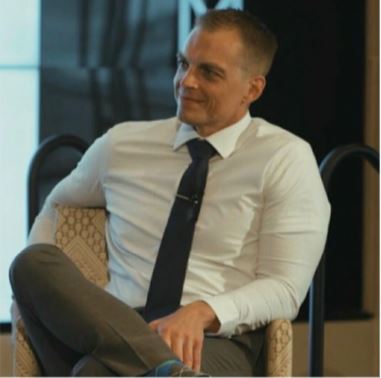It was four months this morning since I left Northfield and it seems twice that long. I shall be so glad when the time comes to go home.” – D.L. Moody in personal correspondence with his brother, George
My wife and I have moved nine times during just over twenty years of marriage. We’ve had a couple of apartments, several houses, and one condo. Our journey has taken us from the city, to the suburbs, to smaller rural towns, and back again. It has been fun, but it has also left us without a sense of “home.” Before our last move a couple of years ago, we committed to doing all we could to make our current house a home. It would be nice to be able to stay a while.
Having a home is not something Christians can take for granted. After all, as Jesus told those who were considering following him, “Foxes have holes, and birds of the air have nests, but the Son of Man has nowhere to lay his head” (Matt 8:20). Homes are not a given but a gift. They are not something to be held so tightly that we refuse to “go” for the sake of the gospel. Yet, homes are important. Where we are and the spaces we occupy influence who we are. In The Christian Imagination, Willie James Jennings highlights the significance of space, noting, “the deepest theological distortion taking place is that the earth, the ground, spaces, and places are being removed as living organizers of identity and as facilitators of identity.” Spaces matter.
I believe that D.L. Moody understood the importance of space. Whether he would have articulated it in the same manner as Jennings is unlikely, but he would have recognized that Northfield, MA, and all that happened there was part of who he was as a person. Seeing his mother struggle to keep a family of nine together after the death of Moody’s father, watching a Unitarian minister care for the physical needs of his family, finding joy in his garden, and a host of other activities were deeply rooted in who D.L. Moody was. He was a man from Northfield.
It is no surprise to find, then, that in one of his many letters, he writes, “It was four months this morning since I left Northfield and it seems twice that long. I shall be so glad when the time comes to go home.” While I doubt Moody would ever have denied the will of God just to lounge in his homestead or be in quiet study, he missed Northfield. It is no wonder that Moody desired to return to Northfield and to be amongst his family and friends. It is no wonder that he desired to enjoy puttering in his garden and strolling up the small hill called Round-Top. It is no wonder that he wanted to go home.
While Northfield is not my home, I do miss being there. The history, the deep sense of spiritual legacy, and the consistent flow of people who visit Moody Center to pray, sing in the auditorium, or just relax on the property and create a refreshing, transformative place. It is an uncommon space uniquely designed to inspire theological reflection and to enjoy God. If ever you have the opportunity, I would encourage you to visit Moody Center in Northfield. Even if you can’t visit, I would encourage you to experience this place from afar through Moody Center’s prayer guide that will lead you through the various buildings and sites on the Moody Center property in Northfield, MA.
Lord, help us to recognize You in the various spaces and places we inhabit. We live in and are a part of your creation. Allow us to find You in special places that You use to change us. Amen.
This is an updated edition of a post originally published on Moody Center.
Featured Image by Peter Brown from Pixabay
USEFUL TO GOD
Eight Lessons from the Life of D. L. Moody
FULL COLOR WITH BEAUTIFUL ILLUSTRATIONS
SEE MORE GREAT BOOKS FROM KINGDOM WINDS PUBLISHING





















[…] Open the full article on the kingdomwinds.com site […]